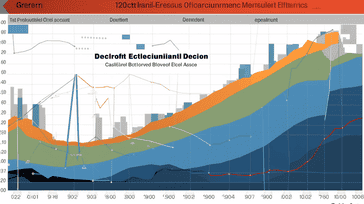
Welcome to our guide on forex market strategies. In the vast world of trading, choosing the right strategy can be the key to success. In this article, we'll compare and contrast two popular forex market strategies: scalping and swing trading. We'll explore the pros and cons of each strategy, the key differences, and help you determine which one suits your investment style best.
Key Takeaways:
- Forex market strategies are essential for profitable trading.
- Scalping and swing trading are two popular forex market strategies.
- Scalping is a short-term trading strategy that aims to make quick profits.
- Swing trading is a longer-term strategy that aims to capture trends.
- The right strategy for you depends on your trading goals, risk tolerance, and personal preferences.
What is the Forex Market?
The Forex Market, also known as the Foreign Exchange Market, is a decentralized, global marketplace where currencies are traded against one another. It's the largest and most liquid financial market, with an average daily turnover of over $5 trillion. Currency trading involves buying one currency while selling another, and the value of each currency fluctuates based on economic, political, and social factors.
Forex trading takes place electronically, and there is no central exchange or physical location, making it accessible to traders around the clock. The Forex Market operates 24 hours a day, 5 days a week, allowing traders to buy and sell currencies at any time of day or night, from anywhere in the world.
Understanding Scalping

Scalping is a popular forex trading strategy that involves making multiple trades in a bid to make small, quick profits. While some traders prefer the long-term approach offered by swing trading, scalping appeals to those who want to capitalize on short-term market fluctuations.
Scalping involves holding trades for just a few minutes, and in some cases, even seconds. The aim is to identify market inefficiencies and take advantage of them before they disappear. Scalping requires a high degree of focus and discipline, as traders need to make quick decisions and act on them promptly.
One of the key advantages of scalping is the high frequency of trades, allowing traders to potentially make profits quickly. However, scalping also comes with its own set of challenges. Firstly, the transaction costs can add up, eating into profits. Secondly, scalping requires a lot of screen time and can lead to mental exhaustion if not managed properly.
Characteristics of Scalping
Scalping is characterized by its short-term nature and the number of trades executed. A scalper is typically looking to make several trades each day, taking advantage of small price movements, and closing positions to lock in quick profits. The strategy is focused on capturing short-term gains, which may be as small as a few pips.
Scalping requires traders to be highly disciplined and focused. The strategy involves having a set of predefined criteria, such as entry and exit points, which need to be met before a trade is executed. Traders need to be able to make quick decisions and act on them promptly, as market conditions can change rapidly and opportunities can disappear just as fast.
Benefits of Scalping
Scalping has several benefits that make it an attractive strategy for some traders. One of the main benefits is the potential for quick profits. Scalping allows traders to make multiple trades each day, which in turn can lead to potentially higher profits if the strategy is executed successfully.
Scalping offers a high level of flexibility, allowing traders to adjust their trading style based on market conditions. The strategy is particularly well-suited to volatile markets, where short-term fluctuations are more common.
Another benefit of scalping is that it allows traders to mitigate their risks, as positions are typically held for only a short period of time. This means that traders can limit their exposure to pullbacks or market corrections that could potentially wipe out profits.
Conclusion
Scalping is a popular forex trading strategy that appeals to traders who want to make quick profits in a short amount of time. While it can be a challenging strategy to execute successfully, the potential for quick profits and flexibility make it an attractive option for some traders. Ultimately, the decision to use scalping as a trading strategy will depend on an individual trader's risk tolerance, trading style, and investment goals.
Pros and Cons of Scalping
Now that we have a better understanding of what scalping is and how it works, let's delve into its pros and cons as a forex market strategy.
Pros of Scalping
- Quick Profits: Scalping offers the potential for quick profits, as traders aim to capture small price movements and generate multiple trades in a short timeframe.
- High Trading Frequency: Scalping involves frequent trades, which means that traders have more opportunities to make profits.
Cons of Scalping
- Risk Management: Scalping requires traders to have a solid understanding of risk management, as the short-term nature of the strategy can increase the risk of losses.
- Challenging: Scalping can be mentally challenging, as traders need to remain focused, disciplined, and stay on top of market trends and analysis.
- Market Analysis and Trends: Scalping heavily relies on market analysis and trends. Without a thorough understanding of the market and its trends, a scalping strategy may not be effective.
It's worth noting that scalping is not suitable for all traders. It requires a particular mindset, a disciplined approach, and a willingness to take risks. Before deciding to use scalping as a strategy, traders must carefully consider its pros and cons and make a decision based on their individual circumstances and investment goals.
Mastering Swing Trading

If you are looking for a forex market strategy that takes advantage of longer-term trends, swing trading may be the right choice for you. Unlike scalping, which focuses on short-term gains, swing trading aims to capture moves that can last for several days or even weeks.
To master swing trading, it's important to stay updated with forex market news and pay close attention to price action. This strategy involves analyzing price charts and identifying trends that may continue for some time. By entering and exiting positions at strategic points, swing traders aim to capture significant moves with lower transaction costs compared to scalping.
Swing Trading vs. Scalping
While both swing trading and scalping are forex market strategies, they differ in terms of trading timeframes, profit targets, and risk management. Scalping involves fast-paced trades that are typically executed in seconds or minutes. In contrast, swing trading takes a more patient approach to capturing moves that may take several days or longer to develop.
Another key difference is profit targets. Scalpers aim to make small profits frequently, while swing traders look for larger moves that can result in significant gains. This means that swing trading requires more capital compared to scalping, which can be executed with smaller trade sizes.
Risk management is also critical when swing trading. Since this strategy involves holding positions for a longer period, there is a higher risk of market fluctuations that can result in losses. To mitigate this risk, swing traders often use stop-loss orders and other risk management techniques to protect their capital.
How to Succeed in Swing Trading
Like any forex market strategy, success in swing trading requires a disciplined approach and constant learning. Here are some tips to help you succeed:
- Stay updated with forex market news: Keep an eye on economic data releases, central bank announcements, and other events that can impact currency prices.
- Use technical analysis: Study price charts and use technical indicators to identify trends and potential entry and exit points.
- Manage your risk: Use stop-loss orders and other risk management techniques to protect your capital and minimize losses.
- Be patient: Swing trading requires a patient approach to capturing larger moves, so don't be tempted to exit positions too early.
- Practice: Use demo accounts to practice your swing trading skills and develop a solid trading strategy.
By following these tips and staying disciplined, you can master swing trading and potentially earn significant profits in the forex market.
Advantages and Disadvantages of Swing Trading
Swing trading is a popular forex market strategy due to its potential for capturing large price movements within a relatively short time frame. As with any strategy, it has its advantages and disadvantages.
Advantages of Swing Trading
- Longer-term trends: Swing traders aim to capture longer-term trends, which means potentially larger profits. They can hold positions for a few days to a few weeks.
- Reduced time commitment: Swing trading requires less time commitment than scalping since traders are not constantly monitoring the market.
- Lower transaction costs: Since swing traders hold positions for longer, they can benefit from lower transaction costs compared to scalping.
Disadvantages of Swing Trading
- Risk management: Holding positions for longer periods means that swing traders are exposed to greater market risk. They need to have a solid risk management plan to minimize potential losses.
- Market trends: Swing trading requires traders to identify and follow market trends. The ability to read and analyze trends is crucial for swing trading success.
- Unpredictable market: Market conditions can change quickly, and swing traders need to be prepared to adapt to unforeseen events.
TIP: To mitigate the risks associated with swing trading, it's advisable to have a solid understanding of market analysis techniques and stay updated with forex market trends. This will help traders make informed decisions and adapt their strategies to market conditions.
Scalping vs. Swing Trading: Key Differences

When it comes to forex market strategies, the two most popular approaches are scalping and swing trading. While both techniques involve buying and selling currency pairs, they differ significantly in terms of trading timeframes, profit targets, risk management, and psychological factors. In this section, we'll explore the key differences between scalping and swing trading, so you can make an informed decision on which approach aligns better with your trading goals.
Trading Timeframes
One of the most significant differences between scalping and swing trading is the trading timeframe. Scalping is a short-term trading strategy that involves opening and closing positions within minutes or even seconds. The goal is to make quick profits from small price movements. On the other hand, swing trading is a longer-term strategy that involves holding positions for several days or even weeks. The goal is to capture larger price movements and take advantage of medium to long-term market trends.
Profit Targets
Another key difference between scalping and swing trading is the profit targets. Scalping aims to make small profits on multiple trades. Traders set tight stop-loss orders to minimize losses and take-profit orders to secure small gains. Swing trading, however, aims to capture larger price movements and take advantage of trends. Traders set wider stop-loss orders to allow for market fluctuations and take-profit orders to secure larger gains.
Risk Management
Risk management is an essential element in forex market strategies. Scalping involves high-frequency trading, meaning traders face more significant risks due to the short-term nature of trades. To mitigate risks, scalpers often use high leverage and tight stop-loss orders. Swing trading, however, involves lower trading frequency, which translates to lower risks. Traders use lower leverage and wider stop-loss orders to allow for market fluctuations.
Psychological Factors
Finally, scalping and swing trading differ significantly in terms of psychological factors. Scalping involves high-stress levels due to the fast-paced nature of trading. Traders need to stay hyper-focused and make quick decisions to enter and exit trades. Swing trading, on the other hand, involves lower stress levels, as traders have more time to analyze the market and make informed decisions.
Summary
Scalping and swing trading are two popular forex market strategies that differ significantly in terms of trading timeframes, profit targets, risk management, and psychological factors. Scalping involves short-term trading, small profit targets, high-frequency trading, and high stress levels. Swing trading involves longer-term trading, larger profit targets, lower frequency trading, and lower stress levels. Choose the strategy that aligns better with your trading goals, risk tolerance, and personal preferences.
Choosing the Right Strategy for You
Choosing the right forex market strategy requires thoughtful consideration of personal trading preferences, risk tolerance, and investment goals. It is essential to evaluate the advantages and disadvantages of each strategy to determine which one aligns better with your style of trading.
If you prefer short-term trading with a high frequency of trades, then scalping may suit your needs. Scalping involves entering and exiting trades quickly to capture small profits multiple times a day. It requires a disciplined approach and a thorough understanding of market trends and analysis. However, it can offer quick returns and the ability to mitigate risk through tight stops.
On the other hand, if you prefer to capture longer-term trends, then swing trading may be a better fit. This strategy involves holding trades for a few days to a few weeks, aiming to capture larger price moves in the market. Swing traders typically use larger stop-loss orders and target larger profits than scalpers. This approach requires patience, discipline, and a good understanding of market news and updates.
When choosing a forex market strategy, it is crucial to consider market forecasts. A strong understanding of the current market conditions and future economic events can help you make informed trading decisions. Analyzing market trends and news regularly can give you a sense of where the market may be headed and help you adjust your strategy accordingly.
| Scalping | Swing Trading | |
|---|---|---|
| Timeframe | Short-term | Long-term |
| Profit Targets | Small and frequent | Larger and less frequent |
| Risk Management | Tight stop-loss orders | Larger stop-loss orders |
| Psychology | Requires discipline and focus | Requires patience and emotional control |
Ultimately, the right forex market strategy for you will depend on your personal preferences and investment goals. Consider your risk tolerance, time commitment, and trading style before choosing a strategy. Remember, successful forex trading requires a continuous learning mindset, discipline, and practice.
Tips for Successful Forex Trading
Forex trading can be a highly rewarding and exciting endeavor, but it also requires discipline, patience, and continuous learning. Here are some essential tips to help you succeed in the forex market:
- Manage your risk: One of the most critical aspects of successful forex trading is managing your risk. Always use stop-loss orders and avoid trading with funds you can't afford to lose.
- Stick to your strategy: It's easy to get swayed by market fluctuations and emotions, but successful traders stick to their strategy and don't make impulsive trades. Develop a plan and stick to it.
- Stay disciplined: Discipline is crucial in forex trading. Follow your trading plan and avoid getting caught up in short-term gains or losses.
- Continuous learning: The forex market is constantly changing, so it's essential to stay updated with relevant news, trends, and analysis. Read books, attend webinars, and follow experts in the field to keep improving your skills.
- Monitor your progress: Keeping track of your trading performance can help you identify areas for improvement and adjust your strategy accordingly. Use a trading journal or spreadsheet to track your trades and analyze your decisions.
"The most important thing in trading is capital preservation." - Paul Tudor Jones
Remember, forex trading is not a get-rich-quick scheme. It takes time, effort, and practice to succeed. By implementing these tips and continuously improving your skills, you can make informed decisions and achieve long-term success in the forex market.
The Importance of Education and Practice
Forex trading requires skill, knowledge, and experience. Whether you choose to scalp or swing trade, it is crucial to invest time in learning and practicing before putting your hard-earned money on the line. Here are some tips to be successful in forex trading:
1. Never stop learning
The forex market is constantly evolving, and staying updated with the latest trends, news, and analysis is essential for success. Invest time in reading books, attending webinars, following blogs, and forums to gain insights into advanced trading strategies and techniques.
2. Develop analytical skills
Understanding market analysis techniques such as fundamental analysis, technical analysis, and sentiment analysis can help you make informed trading decisions. Develop analytical skills to be able to read charts, identify trends, and use indicators to your advantage.
3. Use demo accounts for practice
Most brokers offer free demo accounts with virtual money to practice trading without risking your capital. Practice using different strategies, develop your risk management skills, and hone your trading psychology before moving to a live account.
4. Risk management is key
Forex trading involves risk, and managing your risk is crucial to long-term success. Use proper money management techniques, such as setting stop-loss and take-profit levels, and avoiding overleveraging your account.
5. Discipline is essential
Discipline is key to success in forex trading. Develop a trading plan, stick to it, and avoid emotional decisions based on fear or greed. Remember that losses are a natural part of trading, and learn from your mistakes to improve your strategy.
6. Adapt to changing market conditions
The forex market is highly volatile and constantly changing. Adapt your strategy to changing market conditions, and stay updated with economic events, news, and geopolitical factors that can affect currency prices.
By following these tips, you can enhance your trading skills and increase your chances of success in the forex market. Remember, education and practice are essential for long-term profitability.
Conclusion
Choosing the right forex market strategy is critical for success. Scalping and swing trading are popular approaches to trading, each with unique benefits and challenges.
Remember to consider your personal goals, risk tolerance, and trading style when selecting a strategy.
Stay updated on forex market news and trends, and continually educate yourself on market analysis techniques to refine your trading skills.
Regardless of which strategy you choose, always prioritize risk management and discipline to minimize potential losses.
By applying these tips and developing a sound forex market strategy, you can increase your chances of achieving long-term success in this exciting and dynamic market.
Thank you for reading our article on forex market strategies!
FAQ
What is scalping?
Scalping is a forex trading strategy that involves making multiple trades within a short period of time to capture small price movements. Traders who scalp aim to make quick profits by taking advantage of temporary market inefficiencies.
What is swing trading?
Swing trading is a forex trading strategy that focuses on capturing longer-term trends. Traders who swing trade aim to hold their positions for several days to weeks, allowing them to profit from larger price movements.
What are the benefits of scalping?
Scalping offers the potential for quick profits due to its high trading frequency. It also allows traders to take advantage of short-term market fluctuations and tight spreads, making it attractive for those who prefer fast-paced trading.
What are the benefits of swing trading?
Swing trading allows traders to capture larger trends and potentially yield higher profits. It also requires less time commitment compared to scalping since swing traders hold their positions for a longer duration. This strategy may be suitable for those who prefer a more relaxed approach to trading.
What are the pros and cons of scalping?
The pros of scalping include the potential for quick profits and the ability to trade throughout the day. However, scalping requires precise market analysis and can be mentally demanding. Traders should be aware of the risks involved, such as high trading costs and the potential for losses in volatile market conditions.
What are the pros and cons of swing trading?
The pros of swing trading include the opportunity to capture larger trends and reduced time commitment compared to scalping. Swing trading also allows traders to take advantage of market analysis and news events. However, there is still a risk of losses, and traders must exercise patience and discipline when holding positions for longer durations.
What are the key differences between scalping and swing trading?
Scalping and swing trading differ in terms of trading timeframes, profit targets, risk management, and psychological factors. Scalping focuses on short-term price movements and quick profits, while swing trading aims to capture longer-term trends. Traders should consider their preferred trading style, time availability, and risk tolerance when choosing between the two strategies.
How do I choose the right strategy for me?
To choose the right forex market strategy, consider your trading preferences, risk tolerance, and personal goals. Assess your time availability and the level of commitment you can dedicate to trading. Additionally, staying updated with market forecasts and trends can help inform your decision-making process.
What are some tips for successful forex trading?
Some tips for successful forex trading include practicing effective risk management, maintaining discipline in your trading decisions, continuously learning and adapting strategies based on market conditions, and seeking guidance or mentorship from experienced traders.
How important is education and practice in forex trading?
Education and practice are crucial in forex trading. It is important to develop analytical skills, understand market analysis techniques, and familiarize yourself with the various tools available. Practice using demo accounts to build experience and confidence before committing real funds to trading.







